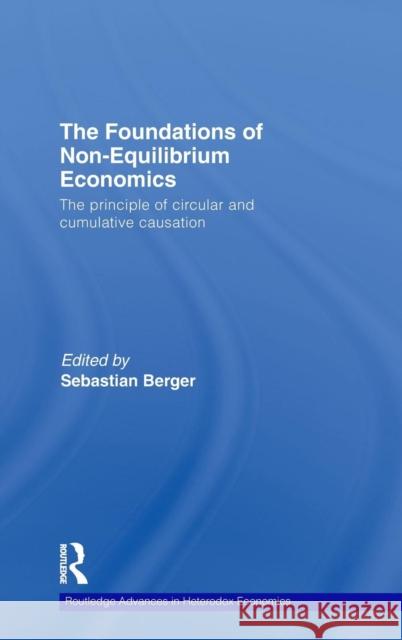The Foundations of Non-Equilibrium Economics: The principle of circular and cumulative causation » książka
The Foundations of Non-Equilibrium Economics: The principle of circular and cumulative causation
ISBN-13: 9780415777803 / Angielski / Twarda / 2009 / 224 str.
The Foundations of Non-Equilibrium Economics: The principle of circular and cumulative causation
ISBN-13: 9780415777803 / Angielski / Twarda / 2009 / 224 str.
(netto: 692,55 VAT: 5%)
Najniższa cena z 30 dni: 705,23
ok. 22 dni roboczych
Bez gwarancji dostawy przed świętami
Darmowa dostawa!
This thought-provoking volume presents essays on the foundations of non-equilibrium economics, i.e. the principle of circular cumulative causation (CCC). This work presents empirical research on how the interplay of technology's increasing returns to scale, institutions, resources, and economic policy leads to virtuous circles of economic growth and development, but also to vicious circles of social and ecological degradation. In particular, evidence is provided for the important role of the "development state" and strategic trade policy, economies of large-scale production in manufacturing, the regional level of development and community-based resource management regimes. While demonstrating CCC's strength in generating empirical research, the book also provides insights into its philosophical foundations and intellectual history. Several essays trace the roots of this full-fledged theoretical framework back to Adam Smith, Classical Political Economy, Thorstein Veblen, Gunnar Myrdal, K. William Kapp and Nicholas Kaldor. As the most comprehensive collection of the growing body of CCC research to date, this book also reflects the emergence of an economic paradigm for understanding economic dynamics and for crafting viable development strategies for the 21st century. The volume will be of great interest to scholars of growth and development economics, institutional and evolutionary economics, political economy, and Post Keynesian economics from undergraduate to postgraduate research levels.
The notion of circular cumulative change - which has been discussed by figures such as Gunnar Myrdal, Thorstein Veblen and K. William Knapp - is often associated with economic development and suggests that once a direction of change is set it will continue. This principle (commonly abbreviated as CCC) might be one of the most undervalued, underused, and under-cited concepts of non-equilibrium economics. The goal of this book is to re-instate the CCC as a key-concept of evolutionary economics, ecological economics, development economics, growth theory, and modern political economics.
The contributors to this volume present new research on CCC. This research is either applied economic research using CCC as an analytical framework, or new research on new unpublished archival material on the origin of CCC. Thereby the book aims at providing a basis for integration of diverse strands of research, providing a sound conceptual foundation for the further development of non-equilibrium economics.
This thought-provoking collection - including endeavours from such leading economists as Richard Holt and Steven Pressman - will be of interest to every thinking economist - particularly those inclined toward political economy, the history of economic thought and development economics.











